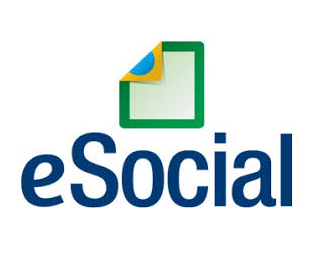
LG Lugar de Gente, the largest company specializing in technology solutions for HR in the country, has been testing the eSocial platform since the beginning of the year, when the tool was released to software houses. Based on this experience, LG pointed out the 6 biggest challenges that companies are facing or will still face when integrating with the platform, which will already be required from 2018.
The planning manager of LG Lugar de Gente, Sáttila Silva, who has been involved in government discussions on eSocial since 2010, explains how to solve it:
1. Information unification
The sending of information from all areas of the companies must be done before the closing of the sheet, so that HR can determine the collections and summarize the data that will be forwarded to the government. That's why departments need to work with information synchronization and the company must encourage communication between them, in order to guarantee the success of deliveries. In LG's payroll solution, for example, it is possible to grant visibility according to specific eSocial files. Thus, each area is responsible for its data and can only access the information that concerns them within the eSocial module.
2. Transparency of processes
eSocial has been showing companies in Brazil that it expects data transparency. Therefore, all information provided needs to be consistent with what actually happens in organizations. For example, eSocial does not wait for the worker's time stamps to be sent, but all the hours that the employee fulfills in the organization must be forwarded. The company that sends the correct information will not suffer from possible tax loopholes, which may trigger assessments and fines.
3. Complexity of the tax system
Brazil is the country where companies spend the most time to catch up with the tax authorities. When starting the approvals with eSocial, companies will be able to feel what the work routine will be like after the implementation of the project. eSocial came to modify the obligations that companies need to fulfill so that they are up to date with the government. This does not mean less work, nor less obligations, because, with the remodeling of organizational processes, many routines will be reviewed and changed in order to become more adherent to what eSocial proposes.
This means that eSocial will be a great source of information for the government, as it will be integrated with the Declaration of Federal Tax Debts and Credits (DCTF Web), a system that will replace the GFIP, and also with the FGTS portal, in which it will be possible to issue the tax payment guides.
4. Change in routine
Companies need to use this moment of testing to understand how eSocial will work from the date of implementation. However, even more important is to validate the real scenarios that exist in the day to day of the organization. As much as eSocial is quite consistent with the defined rules, it may be that the company has a scenario that needs adjustment in a certain rule. If it is not approved within this defined period, when it goes into production, the problematic scenario will be discovered and it may be too late to change and be able to provide the information correctly to eSocial. Therefore, it is important to go on approving and validating the internal data and the adherence of the rule to the company's reality.
5. Meeting deadlines
At this moment, eSocial did not define the turnaround time of the protocols, receipts and inconsistencies of the event submissions, however it made it clear that the turnaround time wait will not be long, but that the company needs to prepare and work with risk management. That is, if the closing of the sheet needs to be sent by the 7th of the month following the month of competence, why not plan to send it before or even send the sheets little by little? As there is no contingency or deadline extension for closing the sheet, the company needs to be aware of the defined deadlines.
6. Data inconsistency
All information related to workers will be on eSocial: admission exams, new employees, layoffs, among others. For the point, working hours and payroll data, it is now possible to carry out tests on the platform. The most important thing is to reflect the reality of the company and, in this way, make the necessary adjustments in the internal processes, verifying the consistency of the information. Thus, it is possible to achieve a balance between the delivery time and the quality of what is being provided.












